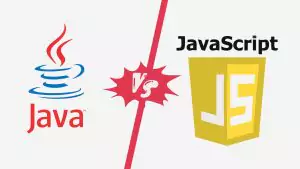In the world of Java programming, the concept of parameters plays a vital role. Parameters serve as placeholders for values that can be passed into methods or constructors. They provide flexibility and enable developers to create dynamic and reusable code. In this guide, we will explore the definition and usage of parameters in Java, their importance, and how they contribute to writing efficient and versatile programs.
Understanding Parameters in Java
Definition of Parameters
In Java, parameters refer to the variables declared in the method or constructor signature. They act as inputs to these methods or constructors and allow values to be passed into them during runtime. Parameters serve as the bridge between the code that calls a method and the code within the method, enabling data exchange and enhancing the functionality of the program.
Types of Parameters in Java
Java supports different types of parameters, including:
- Primitive Parameters: These parameters hold primitive data types such as int, float, boolean, etc. They store the actual values passed to the method.
- Reference Parameters: Reference parameters hold references to objects rather than the objects themselves. They allow methods to access and modify object data.
Using Parameters in Java
Declaring Methods with Parameters
To define a method with parameters in Java, you specify the parameter list within the parentheses following the method name. Each parameter is declared with a specific data type and a unique name. Let’s take a look at an example:
public void greet(String name) {
System.out.println("Hello, " + name + "!");
}In the above example, we define a method called greet that takes a single parameter name of type String. The method body uses the parameter value to generate a greeting message.
Invoking Methods with Arguments
When invoking a method that has parameters, you provide arguments that correspond to the parameter list defined in the method signature. These arguments supply the actual values that will be passed into the method. Consider the following example:
public class Greeting {
public void greet(String name) {
System.out.println("Hello, " + name + "!");
}
public static void main(String[] args) {
Greeting greeting = new Greeting();
greeting.greet("John");
}
}In the above code, we create an instance of the Greeting class and invoke the greet method with the argument "John". The method uses the provided value to generate the output: “Hello, John!”.
Benefits of Using Parameters
1. Code Reusability
By utilizing parameters, you can create reusable methods that can be called with different inputs. This eliminates the need to duplicate code and promotes modular programming practices. Methods with parameters allow you to write code once and use it in various parts of your program, enhancing code maintainability and reducing redundancy.
2. Flexibility and Customization
Parameters enable you to build flexible and customizable methods. By accepting different inputs, methods can perform various operations based on the provided values. This adaptability allows you to create versatile programs that can handle diverse scenarios and cater to specific requirements.
Conclusion
Parameters are a fundamental concept in Java programming. They provide a means to pass values into methods or constructors, facilitating data exchange and enhancing the functionality of programs. By defining and using parameters effectively, you can create dynamic and reusable code that is adaptable to different scenarios.
By mastering the usageof parameters in Java, you can elevate your programming skills and develop robust and modular applications. Understanding how parameters work and incorporating them into your code allows for more efficient and customizable solutions.
FAQ
Are Java parameters limited to specific data types?
No, Java parameters are not limited to specific data types. In Java, parameters can be of any data type, including primitive types (such as int, float, boolean) and reference types (such as String, Object). This flexibility allows developers to pass different types of values as arguments to Java methods and constructors.
Can a Java method have multiple parameters?
Yes, a Java method can have multiple parameters. By defining multiple parameters in the method declaration, you can pass multiple values to the method when calling it. Each parameter is separated by a comma in the method declaration, and the values passed must match the order and types of the parameters defined.
How are arguments different from parameters in Java?
In Java, parameters and arguments are related but have distinct meanings. Parameters are variables defined in the method or constructor declaration, which act as placeholders for values to be passed into the method. On the other hand, arguments are the actual values passed to the method or constructor when it is called. Parameters are used to define the method’s signature, while arguments are the specific values used during the method invocation.
How do you pass parameters to a Java method?
To pass parameters to a Java method, you need to provide the values when calling the method. When invoking a method, you include the arguments inside the parentheses, following the method name. The order and types of the arguments must match the parameters defined in the method declaration.
Can a Java method or constructor have no parameters?
Yes, a Java method or constructor can have no parameters. It is common for methods or constructors to be defined without any parameters when they don’t require any specific values to operate. These parameter-less methods or constructors can still perform actions or return results based on other factors, such as accessing class-level variables or performing internal calculations.
Follow us on Reddit for more insights and updates.





Comments (0)
Welcome to A*Help comments!
We’re all about debate and discussion at A*Help.
We value the diverse opinions of users, so you may find points of view that you don’t agree with. And that’s cool. However, there are certain things we’re not OK with: attempts to manipulate our data in any way, for example, or the posting of discriminative, offensive, hateful, or disparaging material.